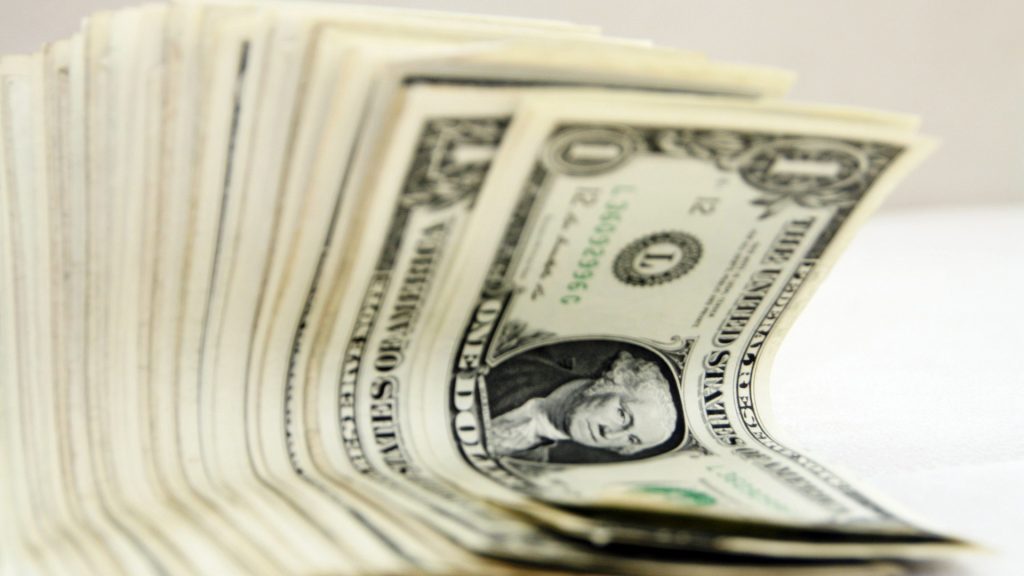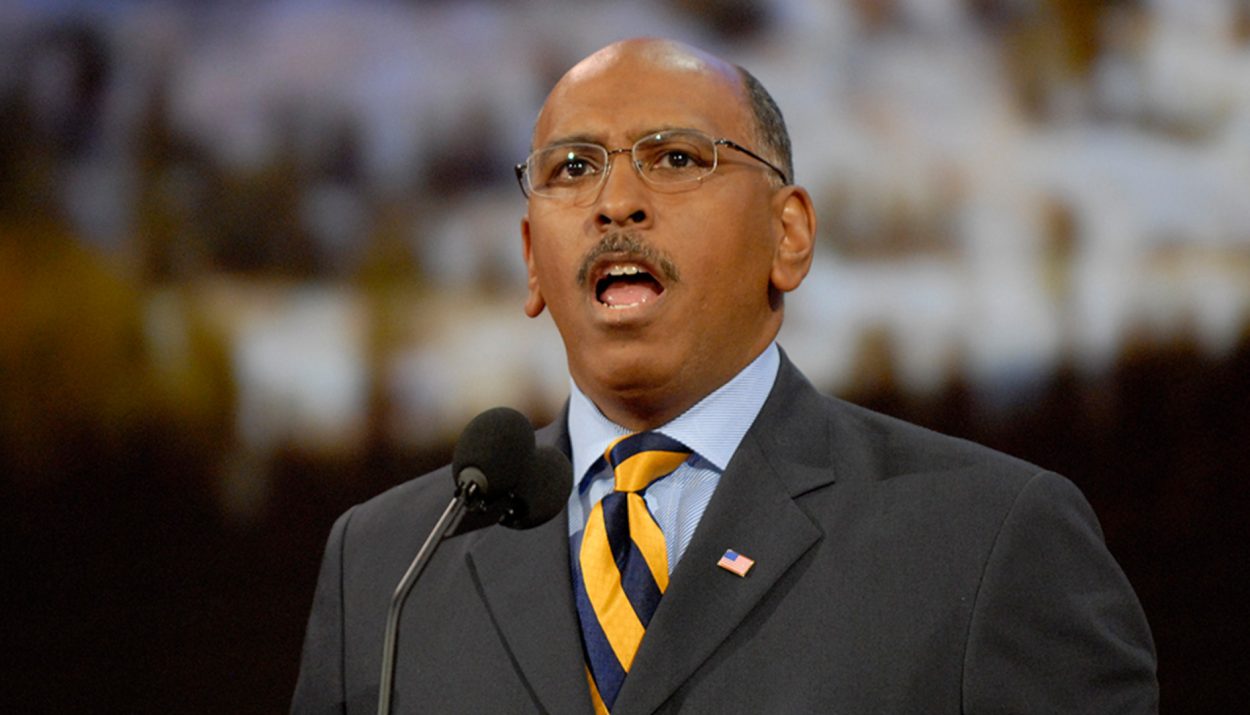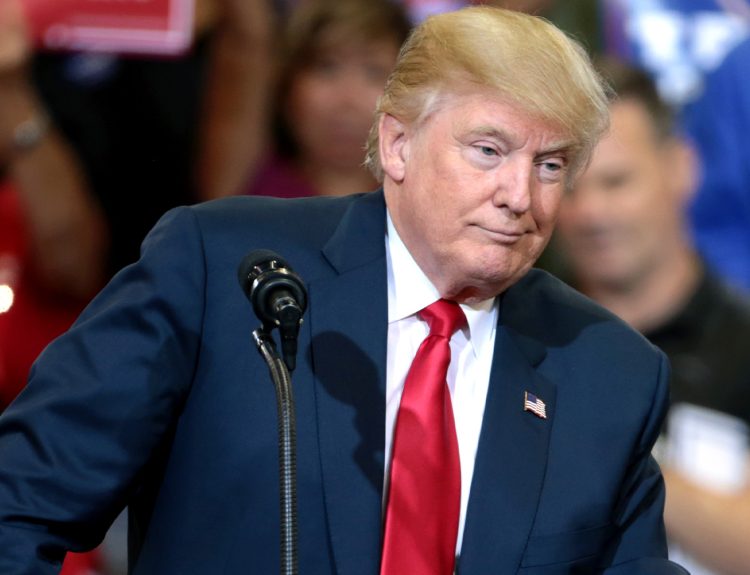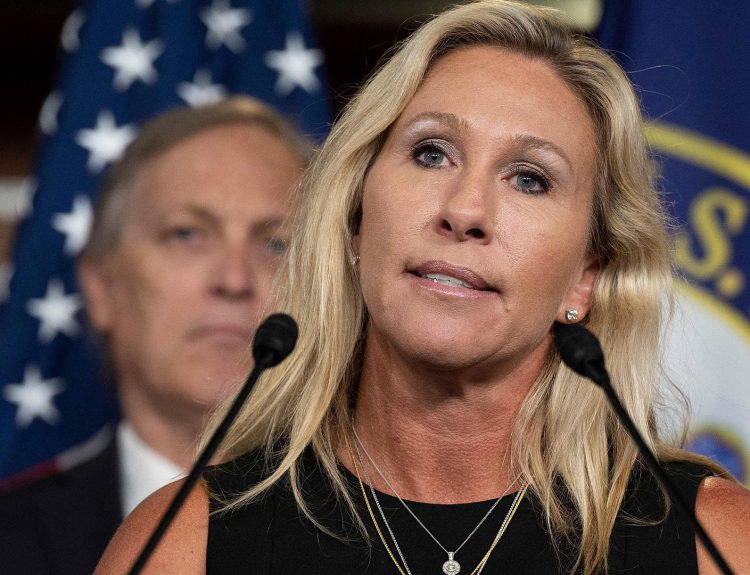Donald Trump has been mired in legal scandals, and one of the most prominent is his fraud case against New York City. Former RNC Chair Michael Steele criticized a recent decision that reduced the bond amount that the former president had to pay and increased the time for payment. Let’s look at the facts.
Judgement Rolled Back
A New York appeals court paused Trump’s responsibility to pay a $464 million fine, reducing the value of the bond by more than half and allowing him a further ten days to pay it.

Steele was incensed by this decision, stating that it shows that Trump is treated to a different brand of “justice” than the rest of the people in the United States.
Unable to Find Funding
Trump tweeted that he had over five hundred million in his campaign account and was willing to start mortgaging some of the properties he owned at “Fire Sale Prices.”

The former president had previously sought to have an insurance company underwrite his fine, but the company required at least 120% of the value of the bond before risking its own money.
Interest Was An Issue
Since Trump wasn’t paying the fine until the Appellate Court reached a judgment, he was in danger of running up quite a bill. Each day he left the fine unpaid, he would be liable for the interest it generated.

This reduction doesn’t remove his responsibility to pay the fine but instead gives him a much smaller bond. The interest rates will still apply to the original $464 million fine.
Trump’s Assets No Good for a Bond
Trump’s lawyers stated that he approached over thirty surety companies using four brokers, and they all turned down the former president’s bond.

According to them, the companies were not willing to accept Trump’s real estate assets as collateral for the bond. The bond’s lowered value may make it more likely that he’ll secure a surety company to help him.
Judges Were Democrat-Appointed
One of the most critical pieces of information about this ruling was that Democrats appointed the judges to hand down the appeal ruling.

It’s an example of political affiliation not playing a part in the justice mechanism. Most Democrat supporters would have found Trump guilty on principle.
The Latest In a Series of Defeats
While this is a minor victory, it still counts as a defeat for the former president. It’s not the only one he’s suffered over the last few months, either.

In a defamation case brought by author E. Jean Carroll, Trump was found guilty and forced to pay a $91 million appeal bond. Some of Trump’s supporters have accused Democrats of weaponizing the legal system.
Not a Political Tool
The legal system is designed to be fair to all citizens of the US, regardless of who they are. The latest decision from the Appellate Court shows that this can work, even though Steele thinks it’s ridiculous.

However, in some hands, the legal system can become a political tool. Some of the former president’s actions suggest that he would not be above persecuting his enemies using this tool.
More on the Horizon
In addition to Trump’s recent cases, there are a few others pending hearings that Trump and his lawyers hope don’t make it to court before the elections roll around.

Trump has been accused of taking classified documents out of the White House, and those documents were retrieved from his Mar-a-Lago resort in Florida. He’s also been accused of paying hush money in New York State.
Facing a Liquidity Problem
While no one is precisely sure what Donald Trump’s actual net worth is, he’s been finding it hard to leverage liquid assets to pay for his fines and bonds. Real Estate doesn’t lend itself to liquidity.

As a real estate tycoon, Trump has many locked-up assets. To increase his liquidity, he would need to sell, mortgage, or trade those assets for cash.
Real Estate Can’t Be Used for Surety
One of the most critical issues facing Trump’s fine payment is that none of the companies would take real estate as collateral for the bond since real estate is notoriously hard to liquidate.

This adds to Trump’s liquidity problem, but the state has no qualms about seizing those properties in place of his payment.
The Ruling Means No Seizure of Assets
NY Attorney General Letitia James threatened Trump that if he couldn’t pay the bond and the interest by the time the limit ran out, she would seize his real estate assets to pay for it.

This ruling and the extended ten-day window offer Trump a much-needed lifeline. He may actually be able to make the full payment on his bond, provided he can get a surety company to work with him.
Other Limitations Reversed As Well
In the initial ruling, Trump and his compatriots who were found guilty of the fraud were banned from holding a director position in any company or getting a loan in New York State.

The Appellate Court reversed these bans. However, as part of the ruling, the court-appointed monitor will continue to oversee the company’s finances for another three years.
This Is A Temporary Reprieve
While it might sound like the fine has been significantly reduced, that’s not actually the case. According to AG James, the fine and all fees and interest associated with it remain.

The Appellate Court offered this as a measure to satisfy both Trump and the State of New York while they deliberate their final decision on the case. If they do not reverse the judgment, Trump is liable for the entire fine.
Hoping To Get to Elections Before The Cases Come Up
Trump hopes elections will happen before his cases come to a resolution. He will likely leverage his position as president (if he wins) to pardon himself – an apparent conflict of interest.

Until then, Trump and his lawyers will take whatever reprieve they can get. Even if Steele thinks the decision is terrible, it’s already been made. It might buy him just enough time to get to the election, which is still wide open.






